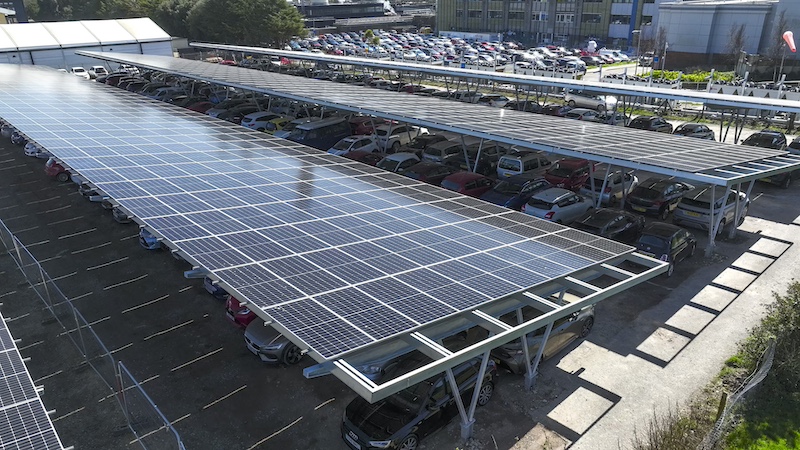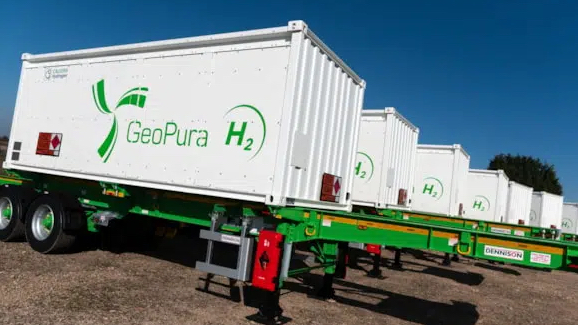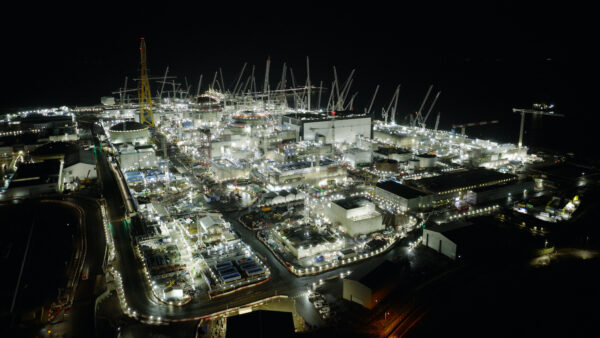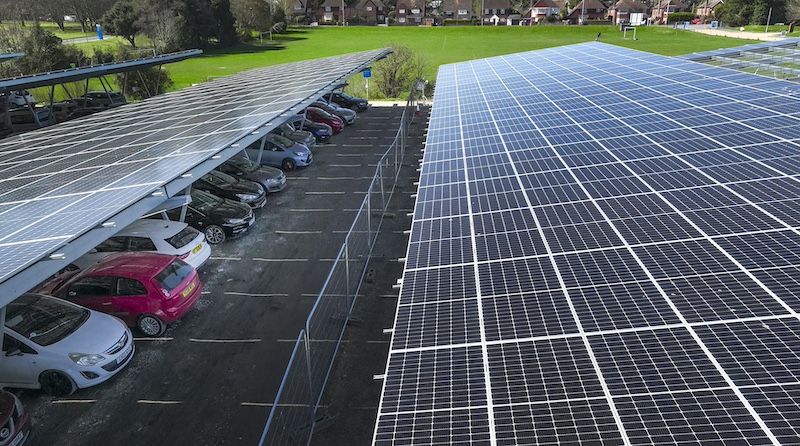
Solar car park (SCP) construction firm 3ti has teamed up with resource management firm Veolia to help reduce the operational carbon of the Eastbourne District General Hospital (EDGH).
The built environment sector must rapidly reduce both embodied and operational carbon to help the UK meet its net-zero 2050 target. Globally, the built environment is responsible for 42% of CO2 emissions annually – 27% is due to building operations and 15% is embodied carbon.
At EDGH, more than 2,412 solar panels have been installed across eight canopies covering 400 parking spaces. Producing renewable energy will help the hospital reduce energy bills and have some independence from the national grid.
The SCP will produce 1,000 MWh of solar-generated electricity annually and cut CO2 emissions by 222 tonnes in the first year alone.
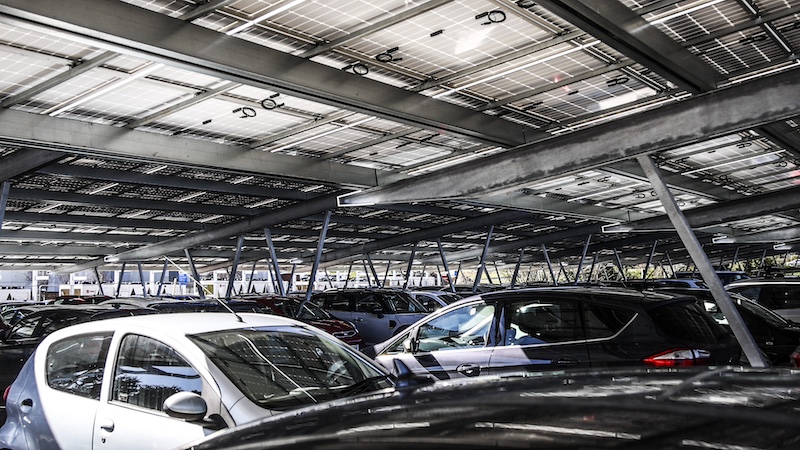
Veolia UK & Ireland industrial, water and energy COO, John Abraham, said: “Achieving the NHS net-zero targets, and maintaining the essential patient care facilities, requires a holistic building approach.
“By using the areas above the car park this latest project is an excellent example of how we can transform the space above ground level to deliver renewable energy.
“This further contributes to the NHS decarbonisation programme by reducing emissions, builds energy security for the hospital, and improves energy cost savings.”
The car park will also allow EV (electric vehicle) owners to charge their vehicles. While the ban on new petrol and diesel cars was been pushed back by prime minister Rishi Sunak last month, it is still coming in by 2035.
3ti founder and chief executive Tim Evans described the project as a “win-win” for all parties. He added: “The SCP provides low-cost and low-carbon electricity for the hospital, car park users benefit from the cover and lighting provided by the canopies, and staff with EVs can charge their cars whilst at work.”
The SCP is part of a £27m energy management contract with Veolia with funding through the Public Sector Decarbonisation Scheme. The contract includes improved insulation and installation of heat pumps, and aims to make carbon savings of 4,129 tonnes per year.
